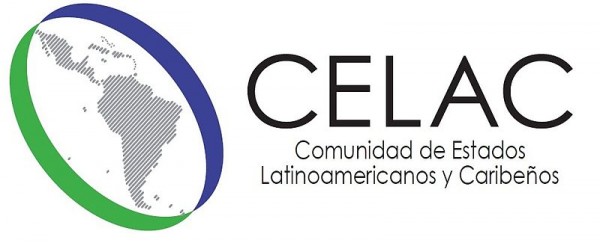Santiago de Chile, January 28th 2013 – Mayors for Peace welcomes the renewed commitment of the 33 Heads of State of Latin America and the Caribbean to work towards a world free of nuclear weapons. The leaders reaffirmed the priority objective to reach a world free of nuclear weapons in the Santiago Declaration adopted today at the First Summit of CELAC (Community of Latin American and Caribbean States). The regional summit emphasized “the commitment to participate actively and share a common position at the High Level Meeting of the United Nations General Assembly on Nuclear Disarmament, to be held in New York City, on 26 September 2013.”
CELAC’s Santiago Declaration builds on last year’s Special Communique on the Total Elimination of Nuclear Weapons adopted at the founding meeting of CELAC in Caracas. Mayors for Peace, which lobbied CELAC ahead of the Santiago Summit, especially welcomes the commitment of the CELAC leaders to prepare a common position for the September 2013 summit.
Mayors for Peace also welcomes news of the engagement of OPANAL (the Agency for the Prohibition of Nuclear Weapons in Latin America and the Caribbean) in the work of CELAC. A CELAC Working-Group with the participation of the Secretary-General of OPANAL, Ambassador Gioconda Ubeda, will develop the joint positions of the 33 Latin American and Caribbean States for the summit. Mayors for Peace, with 614 members in Latin America and the Caribbean, is looking forward to engage with OPANAL towards the UN Summit
The CELAC’s Santiago Declaration refers to nuclear disarmament in 4 of its 73 Points, underscoring the importance given to eliminating the nuclear threat by its leaders. In its first point, CELAC recognizes ¨the value and contribution to peace and international security of the Treaty for the Prohibition of Nuclear Weapons in Latin America and the Caribbean and its Protocols (Tlatelolco Treaty), which established the first most densely populated nuclear-weapon-free zone on the planet¨ already in 1967. Here the Latin American and Caribbean Heads of State ¨call on nuclear powers to withdraw the Reservations or Interpretative Declarations made to Additional Protocols to the Treaty of Tlatelolco; and to respect the denuclearized status of the region¨. CELAC further states that ¨we consider that the existence of nuclear weapons remains a serious threat to mankind. We express our strong support to the conclusion of legally binding instruments that lead to effective, irreversible and verifiable nuclear disarmament, in order to achieve the goal of the complete elimination of all nuclear weapons within well-defined time limits¨.
The proactive CELAC leadership to free the world of nuclear weapons stands in contrast with the very vague reference to the NPT in the common CELAC – EU Santiago Declaration (# 20) adopted last Sunday where it states: ‘Considering the contribution to peace that can be made by CELAC & the EU in international affairs, we agree to explore together ways to enhance cooperation for peace and the peaceful settlement of disputes and the promotion of disarmament and non-proliferation at international level. In this regard, we will cooperate to ensure the success of the NPT Review Conference in 2015’. The vague language does not come as a surprise as the European Union has two nuclear weapon states, France and the UK, amongst its members. Furthermore most of the EU member states rely on NATO’s nuclear doctrines while US nuclear weapons are deployed in Belgium, Germany, Italy and The Netherlands.
According to Mercopress the final EU – CELAC statement also differs from the language presented by CELAC members who openly support Argentine claims over the Falklands and called “to overcome the existence of colonialist practices in the continent” which affect Argentina. They also expressed “concern with the growing militarization and introduction of nuclear weapons to the South Atlantic”.
The CELAC leaders decided that the new troika (Chile, Cuba and Costa Rica) will be joined by Haiti, the President of CARICOM (Caribbean Community), thus forming a quartet. It was also decided that after the Costa Rican Presidency of CELAC in 2015, Ecuador will have the presidency in 2016. The CELAC Summit ended today in Santiago de Chile with President Raúl Castro of Cuba receiving the rotating Presidency from Presdient Sebastián Piñera of Chile.
Article by Aaron Tovish and Pol Heanna D’Huyvetter
Original source can be found here.






